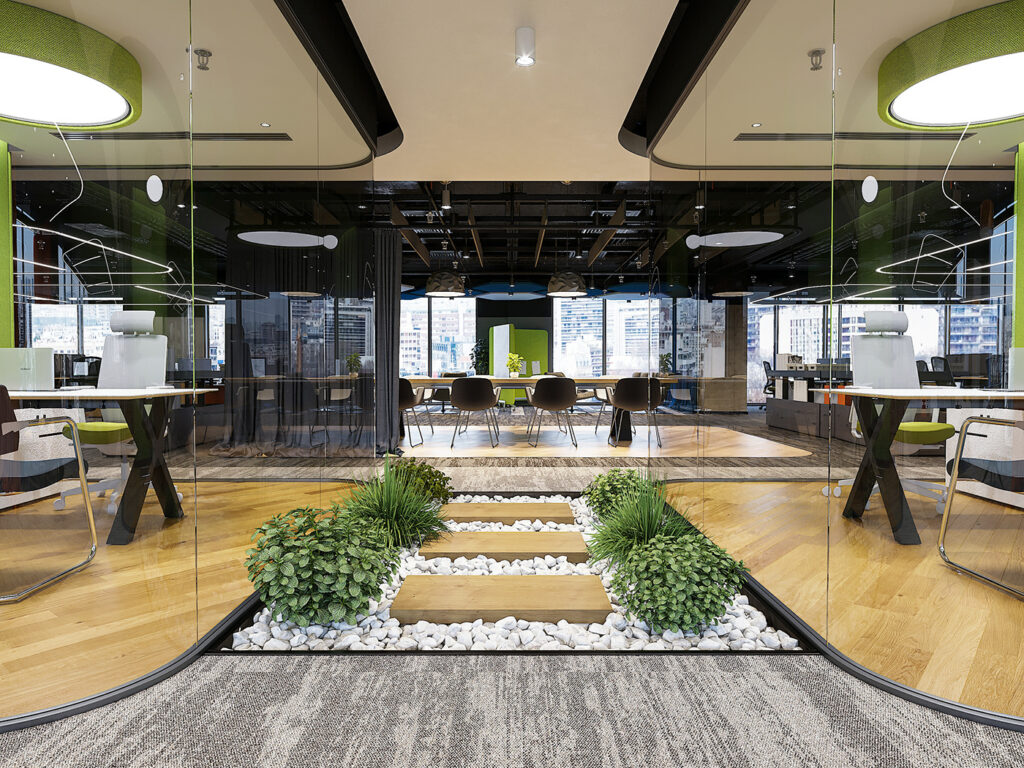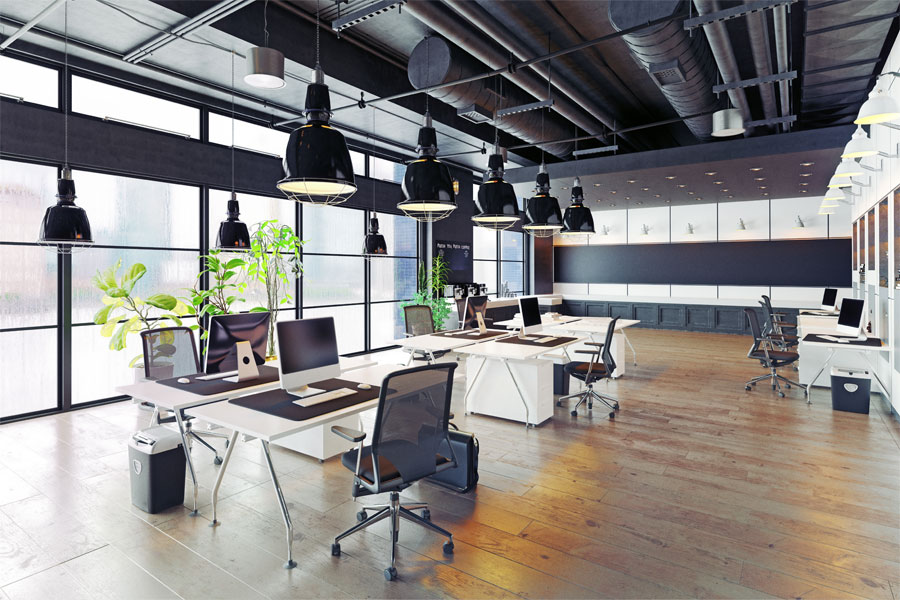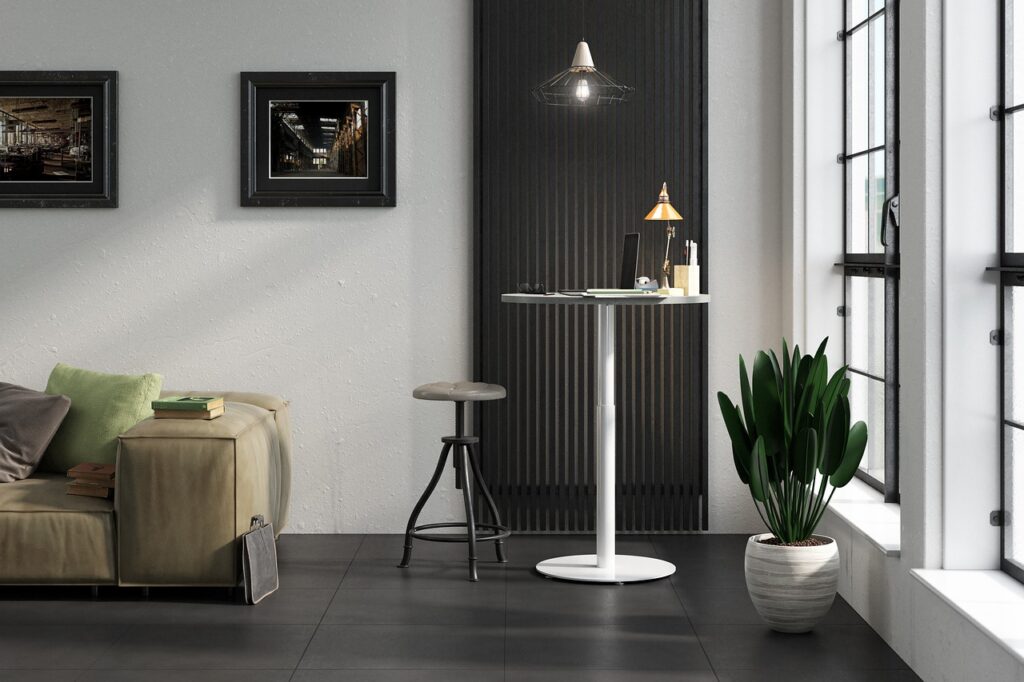Bangalore—India’s Silicon Valley—has become the epicenter of a workspace revolution that’s fundamentally altering how startups operate, innovate, and grow. Behind this transformation lies a sophisticated approach to coworking space design that goes far beyond aesthetics to directly influence business outcomes. For founders, investors, and real estate developers, understanding this evolution offers critical insights into the future of work in India’s most dynamic startup ecosystem.
The Science of Collision Architecture
The most successful coworking spaces in Bangalore’s tech corridors have embraced what designers call “collision architecture”—deliberate design strategies that increase meaningful interactions between members from different companies and backgrounds.
“We’ve moved beyond designing pretty spaces to creating environments engineered for serendipitous innovation,” explains Neha Patel, Lead Designer at a premium Koramangala coworking hub. “Every element in our space—from circulation paths to coffee point placement—is strategically positioned to maximize valuable interactions.”
Recent studies of Bangalore’s top-performing coworking environments reveal these collision-focused design elements consistently deliver measurable results:
- Strategic traffic flow patterns that increase cross-company interactions by 34%
- Mixed-use zones that blend social and work functions to break departmental silos
- Activity-based layouts that encourage movement throughout the day
- Visibility enhancements that showcase ongoing projects and invite collaboration
For startups operating in these environments, the impact is tangible. Companies at collaborative Indiranagar and HSR Layout coworking spaces report 27% more partnership opportunities and 41% faster problem-solving when tackling technical challenges, compared to those in traditional office arrangements.
Flexibility: The Competitive Edge for Growing Startups
Bangalore’s most innovative coworking providers have recognized that standardized workspace solutions no longer serve the dynamic needs of modern startups. Instead, they’re pioneering flexible design frameworks that evolve with growing companies:
Adaptive Infrastructure Features:
- Modular furniture systems reconfigurable in minutes
- Movable partition walls that transform spaces based on changing team sizes
- Technology-embedded environments that adapt to different work modes
- Scalable private zones that grow with expanding teams
“Our ability to scale from 6 to 60 people within the same coworking ecosystem was crucial to maintaining our momentum,” says Arjun Mehta, founder of a fintech startup that recently achieved unicorn status. “The space literally grew with us, eliminating the disruption of multiple relocations during our critical growth phase.”
This flexibility presents a compelling proposition for Bangalore’s venture-backed startups, where headcount can grow 300% in a single quarter following fundraising rounds.
Technology Integration: Beyond Basic Connectivity
The differentiator for premium coworking spaces across Bangalore’s tech corridors isn’t just in physical design but in technological integration that enhances collaboration:
- Room scheduling systems with AI that learns team patterns and suggests optimal meeting times
- Collaborative digital canvases accessible from multiple physical locations
- Environmental controls personalized to different team preferences
- Usage analytics that help companies understand their space utilization patterns
These technological enhancements serve a dual purpose: improving the member experience while generating valuable data for ongoing design refinements.
“We’re constantly evolving our spaces based on usage patterns,” notes Rohan Sharma, Operations Director at a leading Whitefield coworking provider. “When data showed our phone booths were consistently overbooked while certain meeting rooms sat empty, we reconfigured to better match actual usage patterns.”
Community Curation: The Hidden Design Element
Perhaps the most overlooked aspect of successful coworking design in Bangalore is intentional community composition—the careful curation of which companies and individuals share the environment.
Leading spaces are now designing with specific ecosystem development goals:
- Complementary industry mixes that foster supply chain relationships
- Experience diversity balancing first-time founders with seasoned entrepreneurs
- Skill distribution ensuring a healthy range of technical and business expertise
- Investor presence strategically integrated into the community fabric
“We don’t just design physical spaces; we design communities,” explains Vikram Singh, Community Director at a SaaS-focused coworking hub in Bangalore. “Our application process ensures we’re building an ecosystem where members add value to each other, not just consuming square footage.”
This approach has yielded impressive statistics: startups in these curated environments secure funding 1.7x faster than the Bangalore average and report 2.3x more valuable introductions leading to business development opportunities.
Balancing Collaboration and Focus
The most sophisticated coworking designs in Bangalore have moved beyond the open-office extremes that characterized early iterations. Today’s spaces reflect a nuanced understanding of workflow needs:
The Productivity Zone Spectrum:
- High-energy collaboration areas for brainstorming and team activities
- Moderate-focus work neighborhoods for routine tasks requiring occasional consultation
- Deep work sanctuaries completely optimized for individual concentration
- Transitional spaces that buffer between different work modes
“Our productivity increased dramatically when we moved to a coworking space that truly understood the rhythm of software development,” reports Priya Narayan, CTO of a growing health-tech startup. “Having dedicated zones for different types of work eliminated the constant context-switching that was killing our momentum.”
The Future: Data-Driven Design Evolution
Bangalore’s position at the forefront of India’s startup ecosystem makes it the perfect laboratory for the future of collaborative workspace design. The most forward-thinking providers are already implementing:
- Occupancy sensors generating heatmaps of space utilization
- Satisfaction measurement through digital feedback systems
- Productivity correlation studies linking design elements to business outcomes
- Wellness impact assessments tracking how design affects member wellbeing
These insights continuously refine the coworking experience, ensuring spaces evolve alongside the changing needs of Bangalore’s dynamic startup community.
For entrepreneurs considering their workspace options or real estate developers planning new projects, the message is clear: thoughtfully designed collaborative environments deliver measurable advantages in innovation, growth, and talent attraction.
Ready to explore how intelligently designed coworking could benefit your startup? Contact AirBrick Infra’s workspace consultants for a personalized assessment of your team’s specific collaboration needs.





